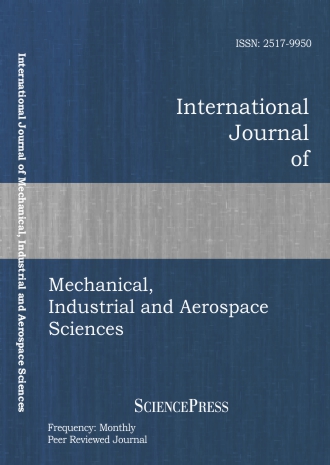
Scholarly
Volume:6, Issue: 1, 2012 Page No: 343 - 346
International Journal of Mechanical, Industrial and Aerospace Sciences
ISSN: 2517-9950
1126 Downloads
Comparing the Performance of the Particle Swarm Optimization and the Genetic Algorithm on the Geometry Design of Longitudinal Fin
In the present work, the performance of the particle swarm optimization and the genetic algorithm compared as a typical geometry design problem. The design maximizes the heat transfer rate from a given fin volume. The analysis presumes that a linear temperature distribution along the fin. The fin profile generated using the B-spline curves and controlled by the change of control point coordinates. An inverse method applied to find the appropriate fin geometry yield the linear temperature distribution along the fin corresponds to optimum design. The numbers of the populations, the count of iterations and time to convergence measure efficiency. Results show that the particle swarm optimization is most efficient for geometry optimization.
References:
[1] S.M.H Sarvari, "Inverse determination of heat source distribution in